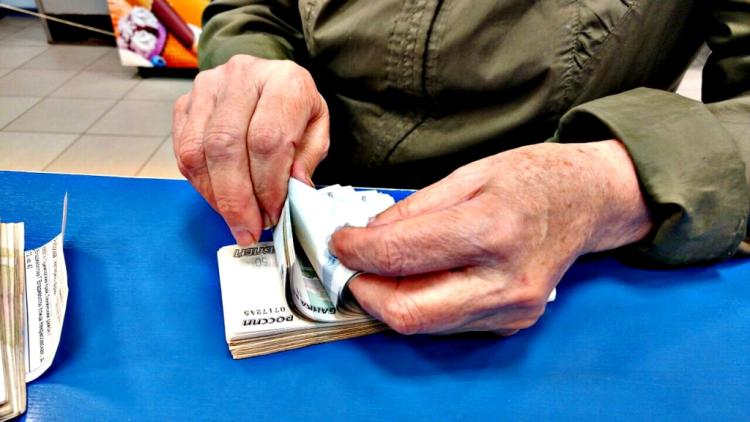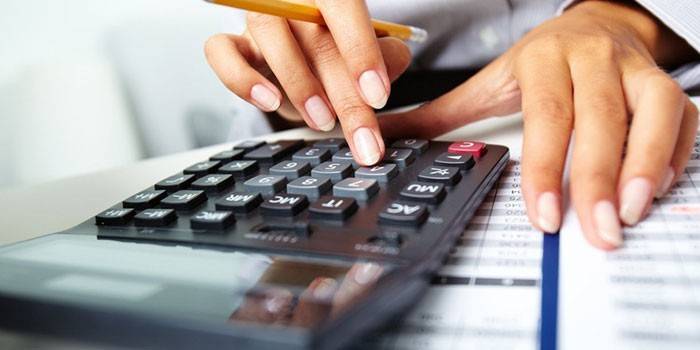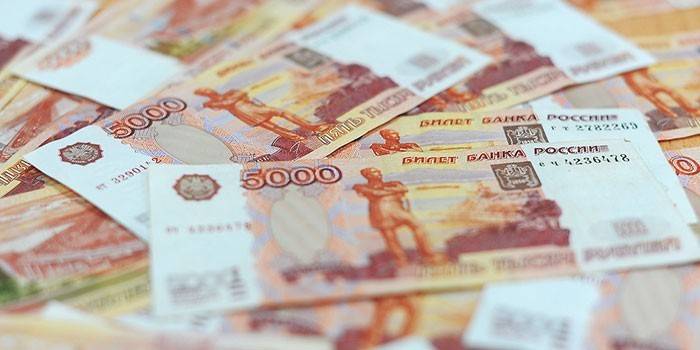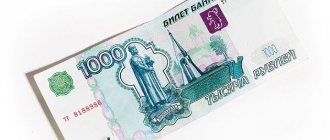Who are working pensioners?
This category includes citizens who have reached retirement age but continue their working activities. They receive both a salary from the company where they are employed and payments from the budget, which does not contradict the current state legislation. Tax deductions and insurance contributions are deducted from the salaries of working citizens of retirement age, which lead to an increase in the amount of pension savings and an annual recalculation of pensions.
Working citizens receiving compensation from the state include:
- disabled people;
- persons who are entitled to labor compensation based on length of service;
- citizens who have lost their breadwinner;
- citizens who have reached retirement age;
- persons engaged in entrepreneurial activities and contract workers.
All of the above persons have the right to count on the protection and support of the state. If we talk about the retirement age, in Russia it has remained unchanged for many years. Women retire at age 60, men at 65. Long-service benefits are received by military personnel, cosmonauts, civil servants, testers, pilots, and medical workers who have worked for the state for more than 20–25 years.
What does the future hold for retirees?
As the Minister of Finance stated, pensions for non-working pensioners will be constantly increased. A program is currently being implemented to significantly increase the level of pensions.
According to this program, by 2030, people of retirement age, as well as children who have lost their breadwinners, and disabled people will receive a pension that exceeds the subsistence level by three to five times.
So far no one has promised anything to working pensioners. Due to the law abolishing indexation, their pension payments remain unchanged. Consequently, questions about increasing pension provision remain open. Perhaps the situation will be changed by the recalculation that they promise to make for working pensioners.
Working Pensioners Law
This document regulates the procedure for calculating compensation for those people who continue to work after reaching retirement age. It has many pros and cons. Basic provisions of the law:
- additions to state payments for length of service after receiving a pension are not expected (according to the government, this is an ineffective use of budget funds);
- a new concept of accrual of points has been formed, tariffs largely depend on this aspect, so the state is trying to stimulate the desire of citizens to work after retirement age has arrived (if a person has the right to receive a pension, but does not apply for it, then the legislation takes into account his pension experience and increases the amount pension payments by 85% or more);
- the minimum length of service for calculating pension payments is currently 6 years, but in 2025 it will be increased to 15 years, otherwise benefits will not be accrued;
- working pensioners entitled to government payments are forced to either make room for the younger generation or give up their pension, in which case they will receive wages and additional allowances for future compensation from the country.
According to the state, the abolition of compensation for working citizens entitled to state benefits will help significantly reduce the budget deficit and increase the size of future state payments to the maximum limit. That is, in 2020, citizens who continue to work after reaching retirement age will not receive any bonuses, since the recalculation system for them has been cancelled. Indexation of pensions for working pensioners is not planned in 2020.
From January 1, 2020, pensions will be indexed in Russia
First of all, plans to take care of people for whom pension is the only source of income

From January 1, 2020, pensions will be indexed in Russia, reports RIA VladNews with reference to Informing.
And, of course, Moscow pensioners would like to know now how much their pensions will increase. After all, the capital authorities recently promised to increase payments to many categories of citizens. But, as experts note, not all pensioners will receive additional increases in pensions.
This time, only non-working pensioners can count on indexing pensions to the level of inflation of the previous year. As the government notes, indexation in 2020 will be even higher than the inflation rate of 2020. After all, at the end of 2020, indexation is expected at 3.2%, while pensions are promised to be indexed at 3.7%.
But working pensioners in 2020 can only count on recalculating their pension for the years of work after retirement. And this recalculation will be carried out in August next year. This norm applies to all Russian pensioners, including those who live in Moscow.
In the future, the government notes, indexation of pensions for working pensioners may return. But so far there are no funds in the budget for these purposes. The government notes that first of all it plans to take care of people for whom pension is the only source of income.
As for those pensioners who work after retirement, the authorities note that their income will increase in 2020, including due to an increase in salaries.
Last week, Moscow Mayor Sergei Sobyanin promised that from January 1, 2020, pensions and social benefits in the capital will increase by 3 thousand rubles. We are talking about the minimum pension, which from January 1, 2018 in Moscow will be 17.5 thousand rubles.
“Today we must make a decision on a significant increase in social payments. We are talking, first of all, about increasing the minimum pension for Moscow pensioners from 14.5 to 17.5 thousand rubles,” Sobyanin said.
He also said that next year one-time and monthly benefits will be increased, including for low-income and large families and veterans of the Great Patriotic War. The one-time payment to persons aged 101 years and older will be increased by five thousand rubles and will amount to 15 thousand rubles. Families raising disabled children will now receive an additional 10 thousand rubles annually. These funds will be provided for the purchase of school uniforms
Do working pensioners receive pensions?
The Russian government, in conditions of crisis, unstable economy, high inflation, sharp changes in the exchange rate of foreign currency against the ruble, rising prices, is constantly reviewing the pension system. Working citizens of retirement age, as before, receive both wages and compensation from the state, consisting of a fixed payment, the amount of which is 3,935 rubles, and insurance compensation, its amount depends on the number of points and length of service.
An increase in pensions in 2020 will be made to everyone who receives payments below the regional subsistence level and whose salary is below 18,000 rubles. In addition, such citizens can count on recalculation. It is produced upon request. In 2020, the state will deny bonuses to those persons whose total salary for the year will be more than 1 million rubles. Today the average minimum pension is 8,803 rubles.
- Height and weight ratio, tables and calculation formulas
- How is chickenpox transmitted in children and adults? Is it possible to get chickenpox through third parties?
- How does diabetes manifest in a child?
How is the pension paid?
After receiving a reward from the state, the procedure for receiving it is as follows:
- the amount due to the person in the planned month is calculated, taking into account the documents of the completed case, including the person’s statements;
- Pension Fund documents are drawn up on the amounts accrued in a certain month for a specific citizen;
- the accrued compensation is sent to the account of the organization that delivers it;
- documents of the Pension Fund of the Russian Federation are sent to the institution delivering state compensation;
- the accrued amount is delivered directly to the citizen.
A person can receive money in several ways:
- by delivery at the cash desk of the organization that delivers pensions;
- by home delivery;
- by crediting a certain amount of funds to the account of a specific citizen in a bank or credit institution.
Delivery of payments is carried out by federal postal organizations, the territorial body of the Pension Fund of the Russian Federation, banks and other financial organizations. They receive payment for their services in the form of a certain percentage of the pension delivered by the recipients. The activities of organizations that deliver payments to working pensioners are regulated by current legislation.
How recalculation is done
To be sure that the Pension Fund did not make a mistake when calculating and recalculating state compensation, working pensioners are required to know the calculation formula. Before the amendments to the law, it was simple, now it is complicated, since it requires taking into account the level of wages, the cost of living, the insurance period, etc., so calculating the amount of state benefits has become more difficult.
A constant review of payments is carried out if a person receives additional income from which contributions are made to the Pension Fund; this applies to state compensation paid for disability and old age. There are two methods of recalculation:
- non-declaration (carried out once a year by the Pension Fund, involves automatic adjustment of payments up or down);
- declarative (carried out on the basis of an application submitted by the citizen to the Pension Fund department at the place of residence no earlier than one year after the accrual of compensation for disability or old age; the document involves the cancellation of automatic recalculation).
Pensions in 2020 are recalculated in the following conditions:
- upon reaching 80 years of age;
- when the disability group changes;
- when the number of dependents changes;
- if a child who received a survivor’s pension also loses a second breadwinner;
- if the citizen has acquired additional work experience.
Based on the new pension project and a different procedure for calculating old-age pension payments, Duma deputies made a proposal to cancel the recalculation of compensation for pensioners who work. But the right to recalculation for citizens who continue to work has been preserved. After further appeals and disputes, the government decided to take into account insurance premiums for working pensioners, but with appropriate restrictions.

Assignment of pensions
According to the pension formula, which has been in effect in Russia since 2020, to qualify for an old-age insurance pension in 2020, you must have at least 9 years of experience and 13.8 pension points.
The maximum number of pension points that can be received in 2020 is 8,7.
The expected payment period when calculating the funded pension in 2018 is 246 months . This parameter is used only to determine the size of the funded pension; the pension itself is paid for life.
The main type of pension in Russia in 2020 will continue to be an insurance pension. The number of its recipients in 2020 is 40.35 million people. Another 4 million people are recipients of state pensions.
Indexation of pensions after dismissal
After a person who continues to work upon reaching retirement age retires, he is immediately given an actual recalculation of state compensation. If the employer submitted data to the Pension Fund on time, payment is made within three or more months after the date of dismissal in the following order:
- subject to leaving the place of employment in July, in August the Pension Fund receives a report indicating information that the person is still listed as working;
- in September, the reporting reflects data according to which the person is no longer employed;
- in October, the Pension Fund decides to index the amount of the fixed payment and insurance pension to this citizen;
- In November, the Pension Fund begins recalculating payments.
Compensation for the three months during which indexation was carried out is not paid. If a person is employed again, the benefit paid will not be reduced, but will remain at the level of the new recalculation. There is no provision for a refund of funds accrued during indexation after dismissal in the event of subsequent employment. That is, the calculated premium will not be deducted. The subsequent dismissal of working pensioners from their place of work entails the renewal of the right to indexation.
- Psychology of family relationships
- What tattoos bring good luck: symbols with photos
- Health benefits of dates. Beneficial properties of dried fruits for the human body, reviews
Pension news for working pensioners today
Pensions in the Russian Federation change three times a year, insurance payments are increased in February, social compensation is indexed in April, and additional payments for people who continue to work are recalculated in August. That is, the next increase in pensions for working pensioners in 2020 should be from August 1, but there will be no recalculation in order to save the state budget and reduce its deficit.
Will there be indexing?
State payments are constantly recalculated taking into account the level of inflation both for non-working pensioners and for people who continue to work. Pensions for working pensioners will not be indexed from January 1, 2018. Citizens can count on its recalculation only after they resign and retire. This also applies to low-income working pensioners. The government is forced to reject all attempts to return indexation due to the difficult economic situation in the country. When improvements come, the issue will be reconsidered.
Increasing pensions and social benefits
Despite the fact that insurance pensions increase by the level of actual inflation for the previous year, in 2020 pensions will increase above the 2020 inflation rate. Already from January 1, 2020, and not from February, as before, insurance pensions of non-working pensioners will increase by 3.7%.
The size of the fixed payment after indexation will be 4,982.9 rubles per month, the cost of the pension point will be 81.49 rubles. As a result, the average annual old-age insurance pension will increase to 14,075 rubles, for non-working pensioners - to 14,329 rubles.
From February 1, the size of the monthly cash payment (MCB) received by federal beneficiaries will be indexed to the 2020 inflation rate.
State pension benefits, including social ones, will be increased by 4.1% from April 1. As a result, the average annual social pension will increase to 9,045 rubles. The average size of the social pension for disabled children and people with disabilities from childhood of the first group will be 13,699 rubles.
Pensioners who worked in 2020 will have their insurance pensions increased in August 2020 - the Pension Fund of the Russian Federation will carry out the traditional non-declaration adjustment of insurance pensions.
At the same time, as before, in 2020 there will be no pensioners in Russia with a monthly income below the pensioner’s subsistence level (PLS) in their region of residence. All non-working pensioners will receive a social supplement to their pension up to the PMP level.
All expenses for social and pension obligations of the Pension Fund are financially supported and taken into account in the Fund’s budget.
How much will working pensioners lose in 2020?
According to official data, this year it is planned to increase state compensation for non-working persons of retirement age by 3.7%. If today the average pension is 13,657 rubles, then in 2020 it will increase by 400 rubles. Working pensioners will not receive any bonuses, but their losses will be insignificant. They will be able to accumulate points that will allow them to increase their compensation several times in the future. In 2018, it is planned to increase the monetary value of one point to 81.49 rubles. Points are calculated in proportion to salary.

What will happen to pensions?
In accordance with the draft budget, next year the average annual old-age insurance pension will increase to 14,075 rubles, and the social pension to 9,045 rubles. The average size of the social pension for disabled children and people with disabilities from childhood of the first group will be 13,699 rubles.
The law provides for the establishment in 2020 of a new procedure for indexing insurance pensions. It will be carried out not twice a year, as previously, but once: on January 1. In this case, the indexation amount will be 3.7%. The size of the fixed payment after indexation will be 4982.9 rubles per month, the cost of the pension point will be 81.49 rubles.
From April 1, 2020, social pensions will be increased for working and non-working pensioners by 4.1%. As a result, the average annual social pension will increase to 9,045 rubles, and the average social pension for disabled children and disabled children of the first group will be 13,699 rubles.
All non-working pensioners will receive a social supplement to their pension up to the subsistence level. For these purposes, the PFR budget has allocated 94.5 billion rubles.
Also, from February 1, 2020, the size of the monthly cash payment received by federal beneficiaries will be indexed to the forecast inflation rate in 2020: 3.2%. Citizens who care for disabled citizens will continue to receive compensation payments in the amount of 1.2 thousand rubles per month.
The size of maternity capital next year will not change and will be 453,026 rubles.
How to increase your pension
There are ways to increase your pension:
- obtain additional insurance experience;
- refuse state compensation for a certain period of time;
- submit updated salary certificates.
Regardless of which of the described methods is chosen, in order to receive a recalculation of the pension payment, a person will need to contact the Pension Fund at the place of residence, write an application, and attach the relevant documents. If the application is submitted before the 15th day of the current reporting month, the payment will be recalculated from the 1st day of this month, if after the 15th day - from the 1st day of the next reporting month.









